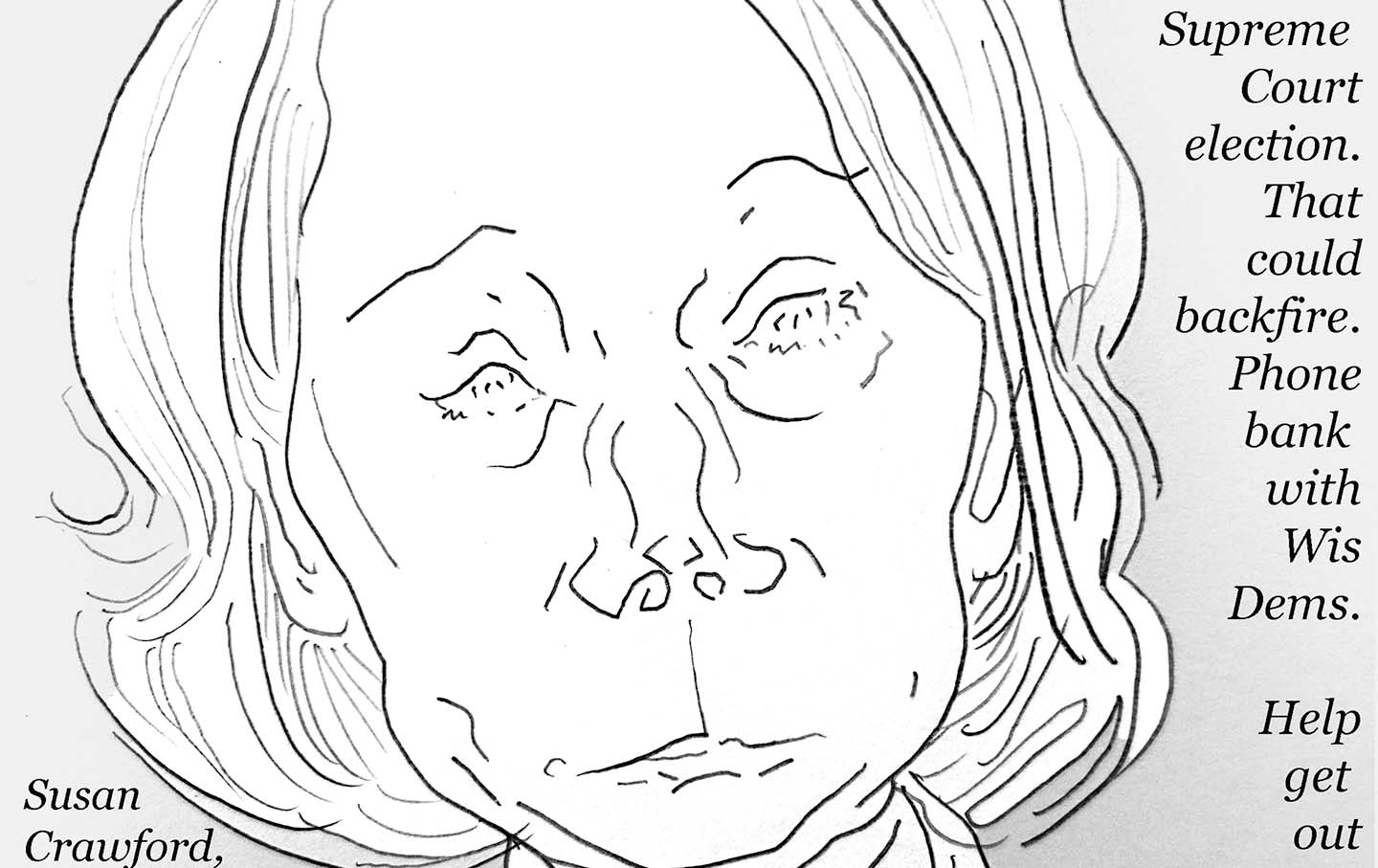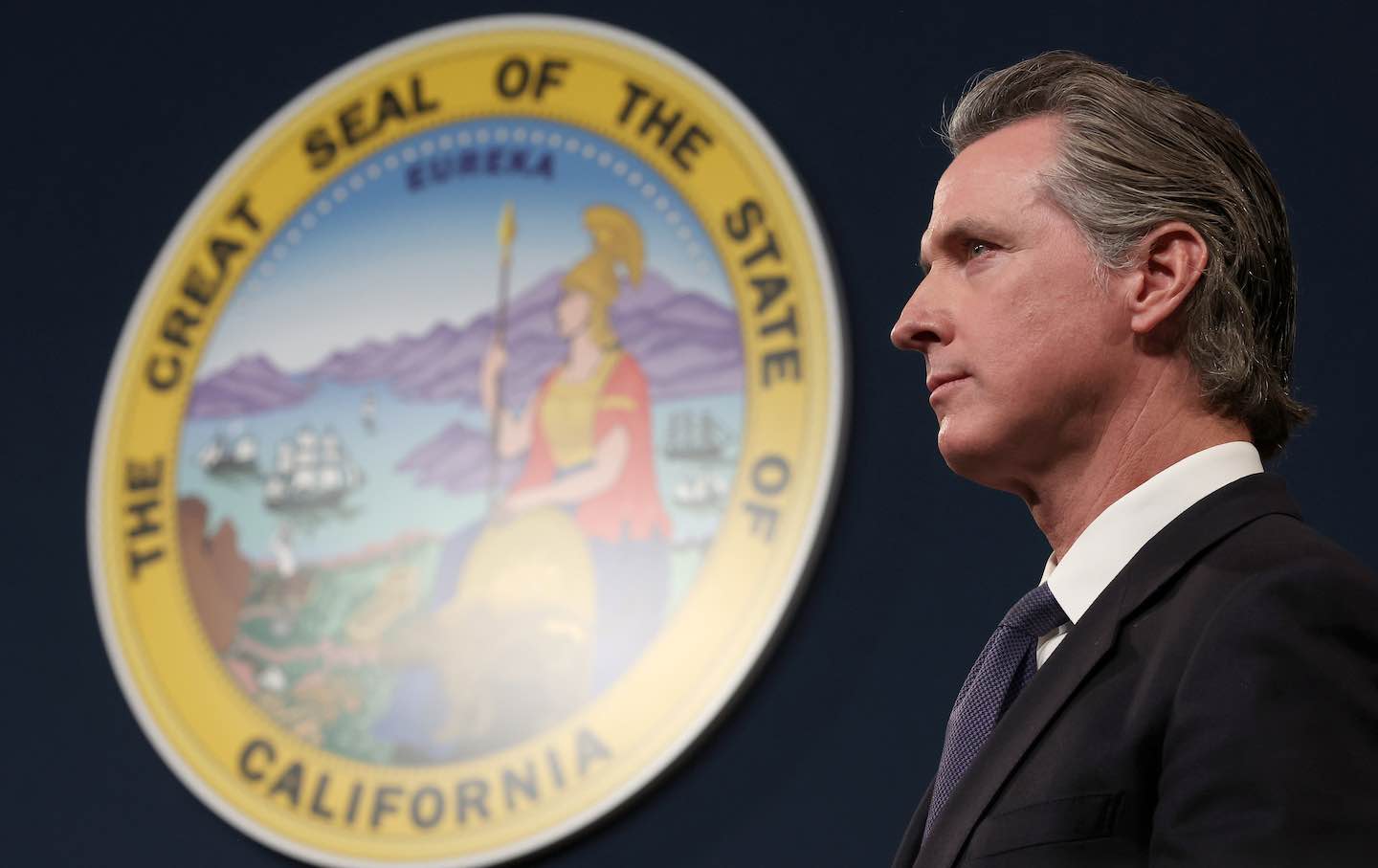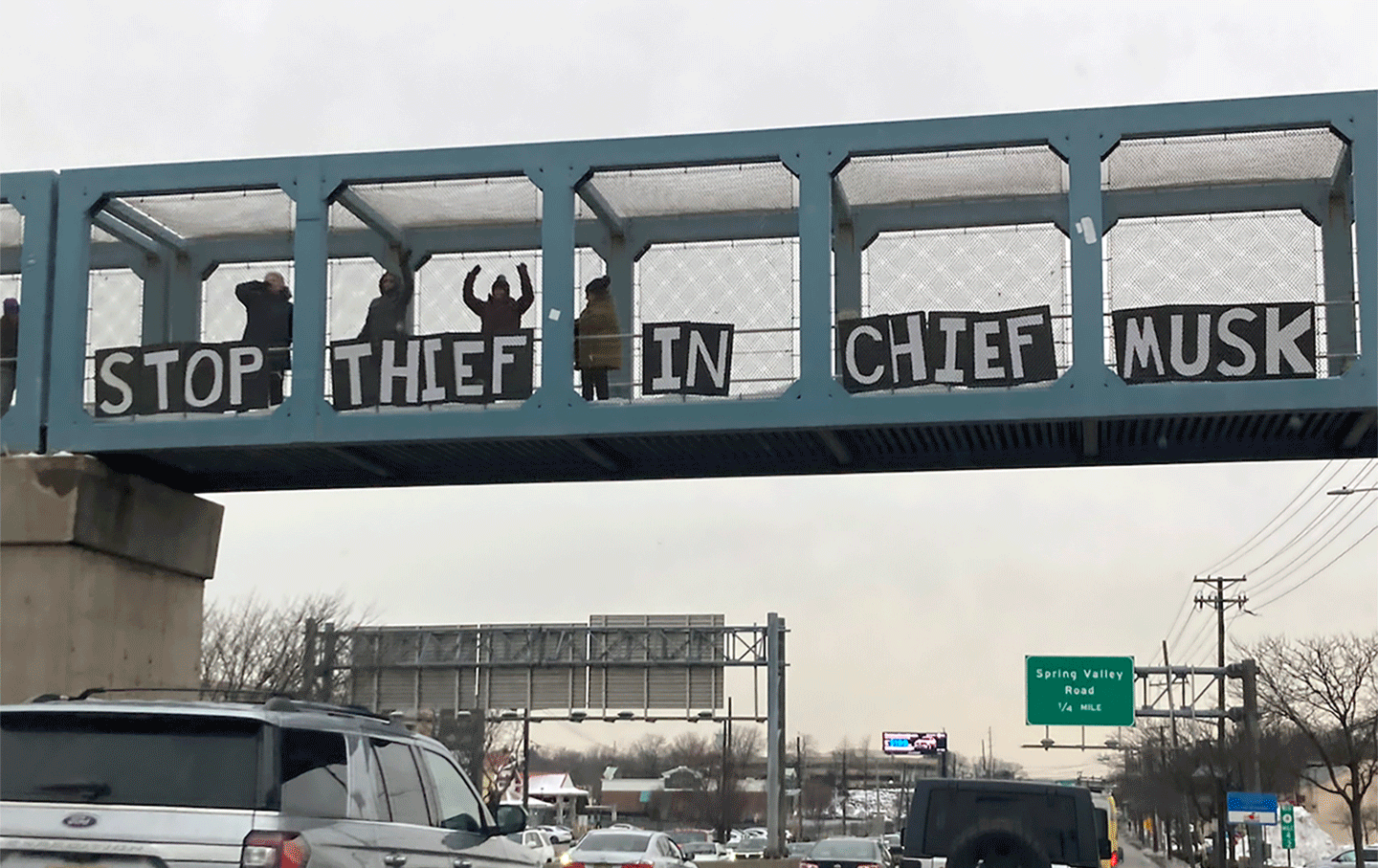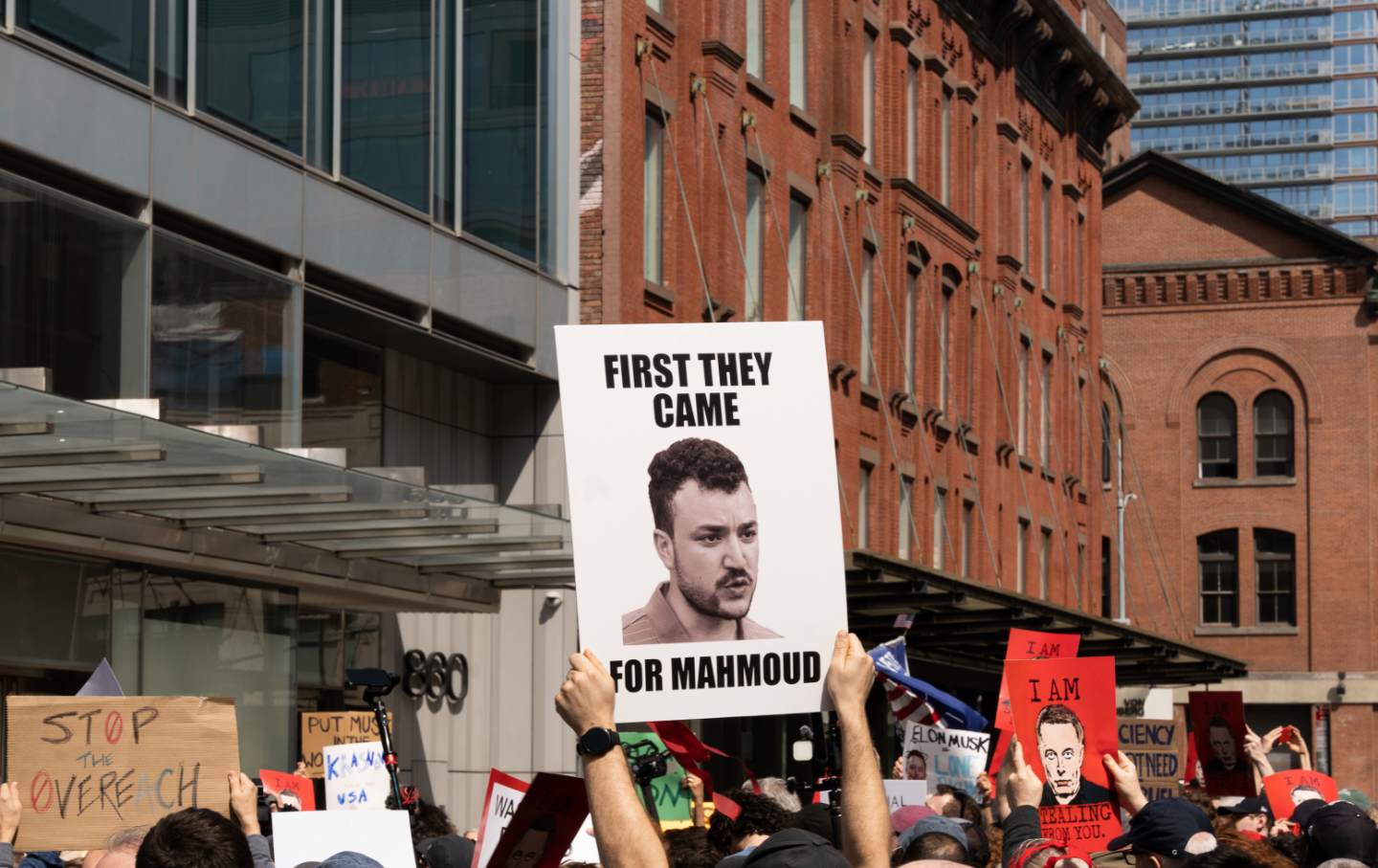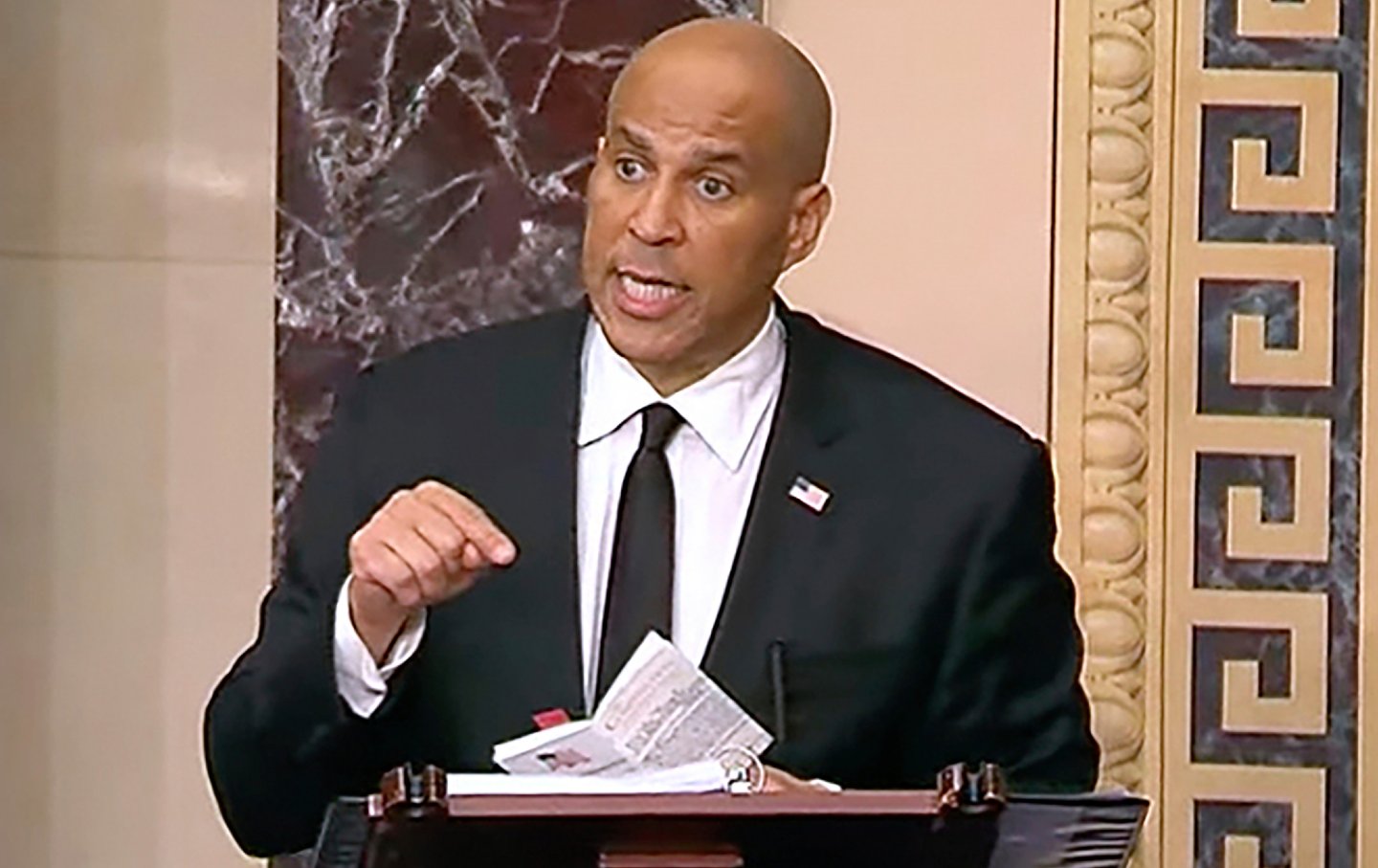Kamala Harris Is Winning the Teamsters Endorsements That Really Matter
The national leadership may have snubbed her—but Teamsters in the swing states that will decide the election are backing her all the way.
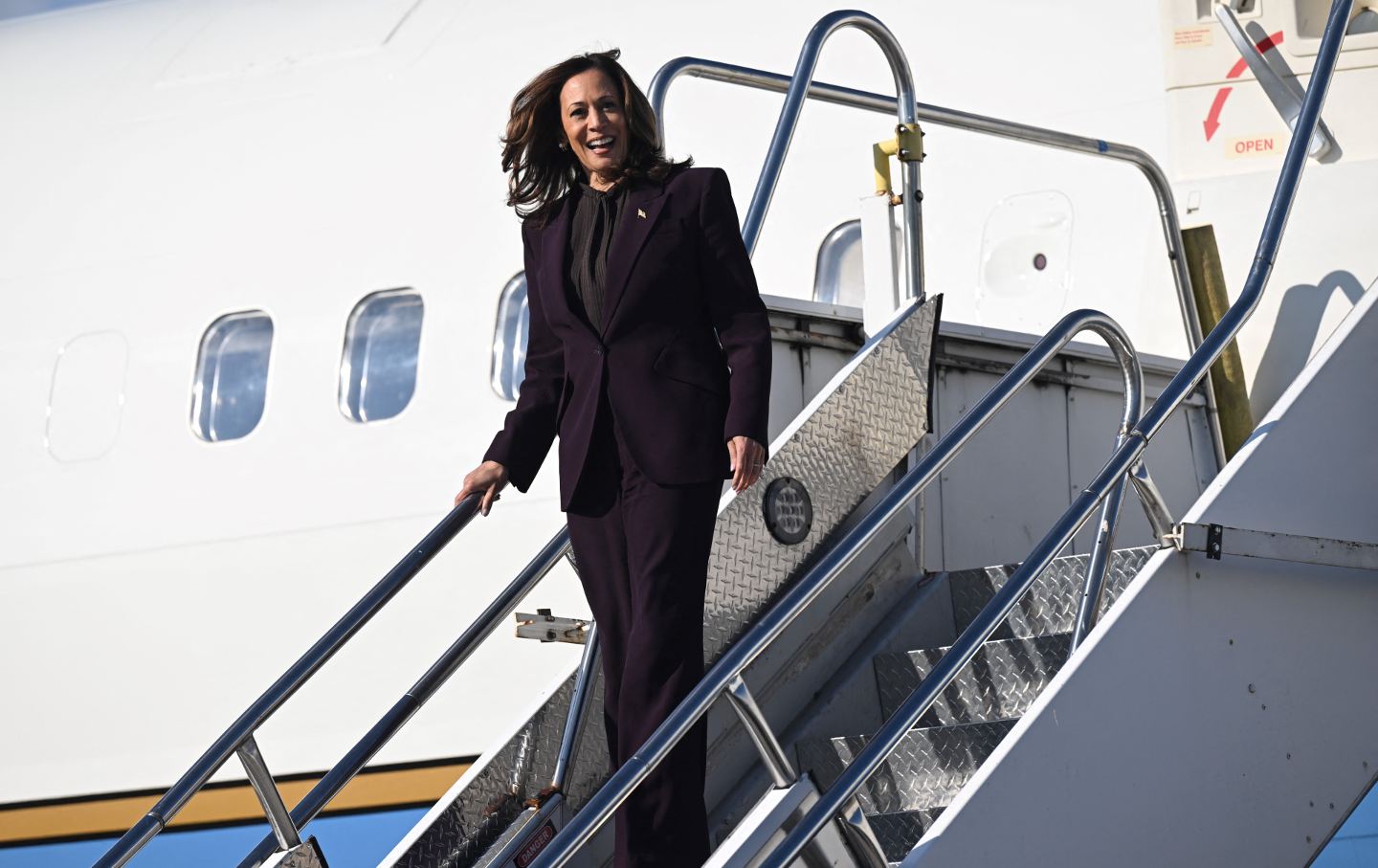
Kamala Harris disembarks from Air Force Two upon arrival at Detroit Metropolitan Wayne County Airport in Romulus, Michigan, on September 19, 2024.
(Saul Loeb / AFP via Getty Images)Dire reports in media outlets that rarely, if ever, cover organized labor seriously would have us believe that Vice President Kamala Harris was dealt a major blow on Wednesday, when Sean O’Brien, the general president of the International Brotherhood of Teamsters, announced that the union would not support the Democrat’s candidacy—or that of her Republican rival, former president Donald Trump. But, as with so many other issues, it pays to look beyond the headlines on this story—because, while the Harris campaign may not have won over the national leadership of the Teamsters in Washington, it has ended up with something more important: a bonanza of endorsements from Teamsters units in the battleground states that will decide the presidential race.
In fact, Harris received so many endorsements from Teamsters joint councils and union locals in states across the country that her campaign is now touting endorsements of the Democrat from units representing more than 1 million of the labor organization’s 1.3 million members. And they’ve gotten a boost from James P. Hoffa, who led the union for decades as its general president. Hoffa ripped into the current leadership, calling the failure to back the Democratic ticket this year “a critical error and, frankly, a failure of leadership by O’Brien.”
“This election is too important for our union not to do its duty. We must take a stand for working Americans,” declared the 83-year-old Hoffa, who has retained widespread loyalty within the union since he retired in 2022. “There is only one candidate in this race that has supported working families and unions throughout their career, and that is Vice President Kamala Harris.”
The refusal of O’Brien and the Teamsters leadership in Washington to back Harris was never as big a deal as initial media reports suggested. Harris already enjoyed the overwhelming support of the labor movement even while she sought t a formal endorsement from the Teamsters. Along with an enthusiastic endorsement from the AFL-CIO, the umbrella organization for 60 national unions, the Democratic ticket has the backing of the vast majority of unions that matter nationally and in the swing states—including labor organizations with long records of doing the heavy lifting at election time, such as the United Auto Workers, the Steelworkers, AFSCME, the Service Employees, the American Federation of Teachers, the Painters, the Laborers, and Unite-Here’s Culinary Workers local in Nevada.
Just two weeks ago, with barely a whisper from cable networks, newspapers of record, or the websites that attempt to cover politics, the 600,000-member International Association of Machinists, a union with substantial influence in states from Pennsylvania to Georgia to Wisconsin and Arizona, endorsed Harris as “an instrumental leader in helping President Biden create the most union-friendly administration in American history.”
That record is one of the reasons so many of the Teamsters rank and file wanted their leadership to back Harris and her Democratic running mate, Minnesota Governor Tim Walz. It was clear there were partisan differences within the union, as was indicated by internal polls showing significant—in some cases, majority—support for Trump. At the same time, key groups within the union argued that the best response to these divisions was not to avoid responsibly with a non-endorsement—and certainly not to back the Republican—but rather to endorse Harris, mount a major education campaign about her pro-union, pro-worker record, and rally Teamsters to back her bid.
In August, the Teamsters National Black Caucus took the rare step of issuing a formal statement backing the Democrats because of their “unwavering commitment to workers and their families.” The caucus argued, “Their records reflect a deep dedication to advancing labor rights and supporting working-class Americans.” Prominent regional leaders across the country delivered similar messages, with Josh Zivalich, the influential president of Teamsters Local 769 in South Florida, arguing in an August letter to O’Brien—which was sent after O’Brien’s appearance at the Republican National Convention—“Vice President Harris has proved herself to us, especially in that she cast the deciding vote on the multi-employer pension relief bill, saving the pensions of hundreds of thousands of Teamsters as you well know.”
In contrast, Trump is seeking the presidency as “one of the most anti-union, anti-worker politicians in history,” wrote Zivalich, who explained,
The problem is not that Trump is a Republican, the problem is he is Anti-Union. Trump’s Administration appointed an anti-Union Chair of the NLRB [National Labor Relations Board] and countless other attacks on worker’s rights, including recently praising Elon Musk for union-busting activities—and you are also well aware of that. Why is this endorsement even a question? It shouldn’t be—and nearly every Local Union Leader in the Country knows it.
O’Brien rejected that counsel, choosing instead to have the international union vacate the field for the first time since the Teamsters sat out the 1996. That year, many unions were frustrated by the choice between Democratic President Bill Clinton, who had burned bridges with his support for the North American Free Trade Agreement, and Republican Senate ;eader Bob Dole, another NAFTA backer.
O’Brien tried to suggest that the choice this year was similarly unclear. But the claim was met with widespread derision from the union’s most active members. So it was that, after the international stood down, Teamsters joint councils and locals across the country rushed to endorse Harris and Walz. On Wednesday night, the “Teamsters Against Trump” movement asked: “How do you spell momentum? In the last 8 hours, joint councils representing nearly half a million Teamsters endorsed Harris.” By midday Thursday the union uprising had gone national, with Harris’s campaign announcing that she had—in barely a day—gained the backing of regional joint councils and local unions representing roughly 1 million Teamsters. “These local Teamsters have committed to immediately begin knocking doors and engaging in other voter-contact efforts across the battlegrounds, noted the campaign, which distributed a list of endorsers that spanned the United States,” announced the Harris camp, which listed endorsements from the Teamster Retirees organization and the Teamsters National Black Caucus, along with support from joint councils in Michigan, Wisconsin, southern Nevada, northern Nevada, western Pennsylvania and northern West Virginia, Washington and Alaska and Idaho, Minnesota and Iowa and North Dakota and South Dakota and western Wisconsin, Illinois and Missouri, as well as major locals in Philadelphia, Boston, Miami, and New York.
Michigan, Wisconsin, Nevada, and Pennsylvania are among the most hotly contested battleground states of the 2024 presidential race. Having the support of Teamster joint councils, which are composed of multiple union locals and have substantial resources, provides a major boost for the Harris-Walz ticket—especially when that support is this enthusiastic. Hailing Harris’s work to save union pensions as vice president in “the most pro-union administration ever,” Wisconsin’s Joint Council 39 declared,
As President, Kamala Harris will build on those efforts and work with Congress to pass the PRO Act, ending union some of the most egregious union busting tactics once and for all. In contrast, Donald Trump tried to gut workers’ rights as President by appointing union busters to the NLRB and advocating for (an anti-labor) national right-to-work (law). Trump’s project 2025 would go even further, attacking the ability for unions to even have the ability to organize.”
“This November,” announced the joint council, which represents 15,000 Teamsters in a battleground state where four of the past six presidential elections have been decided by under 25,000 votes, “we will work with millions of union workers across the country to defeat Donald Trump once again, and to send Vice President Harris and Governor Walz to the White House.” In western Pennsylvania, Carl Bailey, the president of the 35,000-member Teamsters Joint Council 40, echoed that fervent desire to defeat Trump, saying, “I don’t think he cares about working people. He used to brag about having people fired. My job is to keep people from being fired.”
Such statements are in stark contrast to the muddled message that’s been sent by the union’s national leadership—and they point to the bottom-line reality that has emerged from a chaotic week of speculation about where Harris stands with the Teamsters in particular, and with organized labor in general: While O’Brien and the union leadership in DC have “chosen to take a seat on the sidelines,” as Hoffa puts it, Teamsters units across the United States are in the game—pulling for the Democratic presidential ticket, as well Senate candidates, in critical battleground states.
That doesn’t mean that Harris is going to get all the votes of Teamsters in those states—or nationally. Like most unions, the Teamsters have plenty of Republican members. What is going to happen, however, is that Kamala Harris is going to get hundreds of thousands of Teamster voters—and that some of the most dynamic union organizing on Harris’s behalf, in the states that matter most, will be done by Teamsters union locals and joint councils that are working in solidarity wth the broader labor movement.
Popular
“swipe left below to view more authors”Swipe →Florida’s Josh Zivalich, whose Local 769 gave a strong endorsement to Harris this week, summed up the sentiments of the union members who have chosen to engage on behalf of the Democrats by saying, “There has never been a more obvious choice for the International Brotherhood of Teamsters in a U.S. presidential race.”

